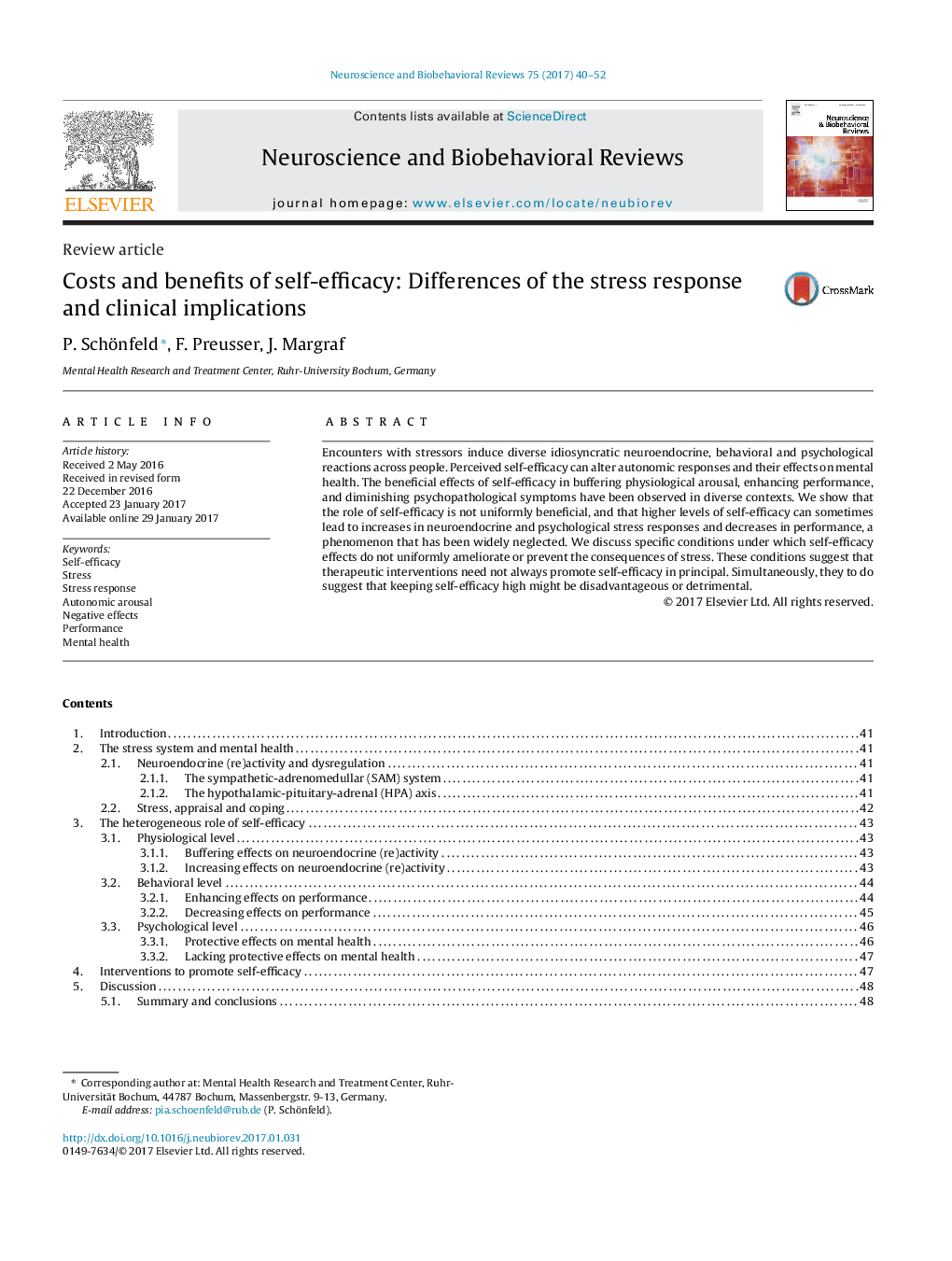| Article ID | Journal | Published Year | Pages | File Type |
|---|---|---|---|---|
| 5043498 | Neuroscience & Biobehavioral Reviews | 2017 | 13 Pages |
â¢Self-efficacy is crucial for neuroendocrine and psychological reactivity of stress.â¢Evidence for protective effects of self-efficacy has a broad scope.â¢The role of self-efficacy is however heterogeneous.â¢It can also increase autonomic responses, decrease performance and diminish mental health.â¢Experimental research and interventions aimed at promotion are reflected critically.
Encounters with stressors induce diverse idiosyncratic neuroendocrine, behavioral and psychological reactions across people. Perceived self-efficacy can alter autonomic responses and their effects on mental health. The beneficial effects of self-efficacy in buffering physiological arousal, enhancing performance, and diminishing psychopathological symptoms have been observed in diverse contexts. We show that the role of self-efficacy is not uniformly beneficial, and that higher levels of self-efficacy can sometimes lead to increases in neuroendocrine and psychological stress responses and decreases in performance, a phenomenon that has been widely neglected. We discuss specific conditions under which self-efficacy effects do not uniformly ameliorate or prevent the consequences of stress. These conditions suggest that therapeutic interventions need not always promote self-efficacy in principal. Simultaneously, they to do suggest that keeping self-efficacy high might be disadvantageous or detrimental.
